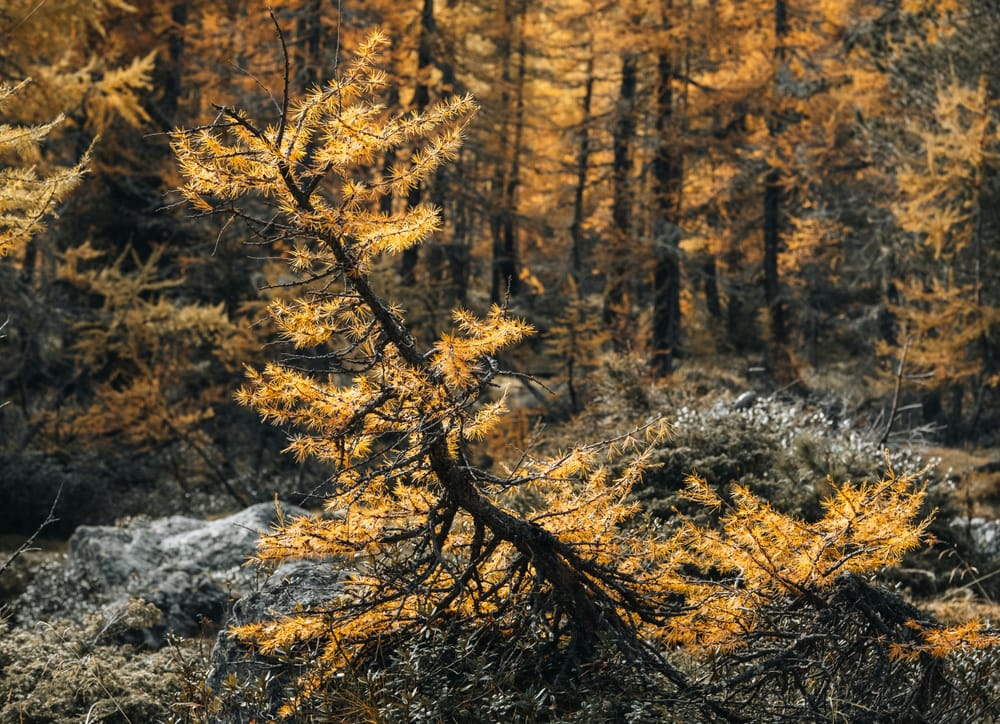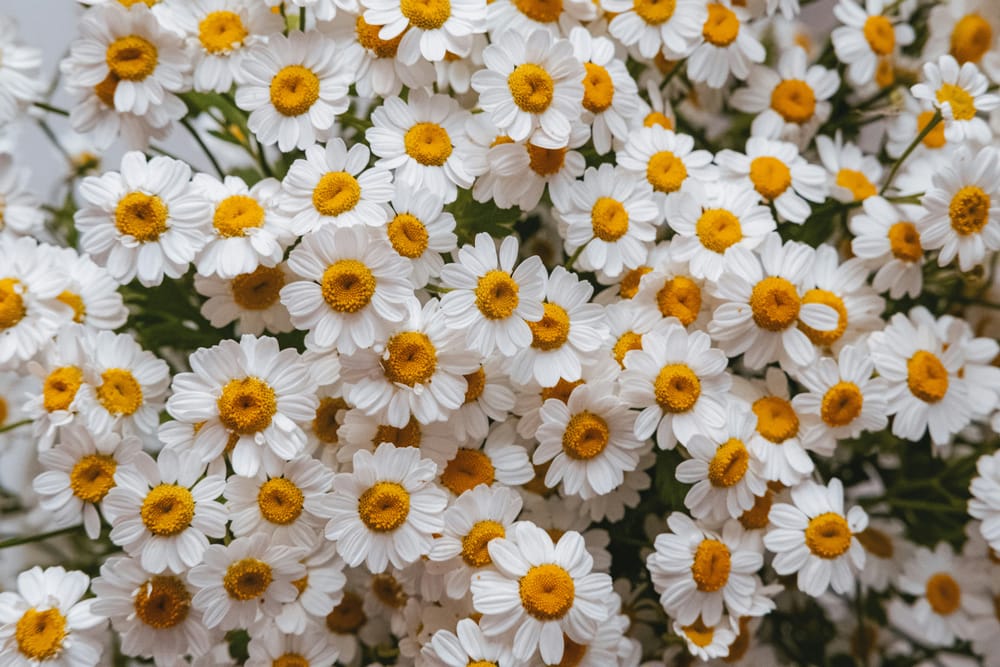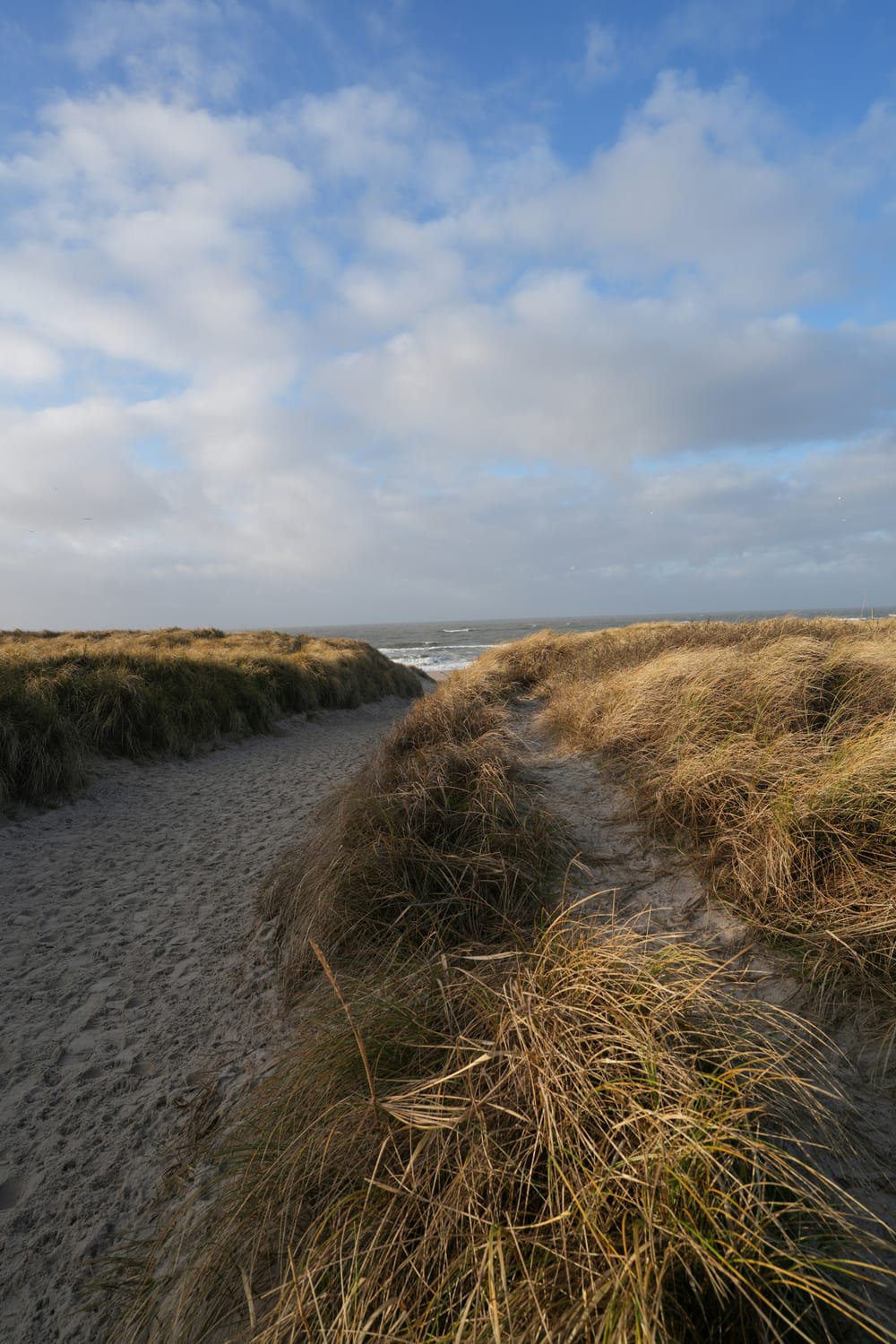The world is transforming, dear Witches, and the Flamingo still bears witness to it all.
Pink means power.
Listen now, transcript below:
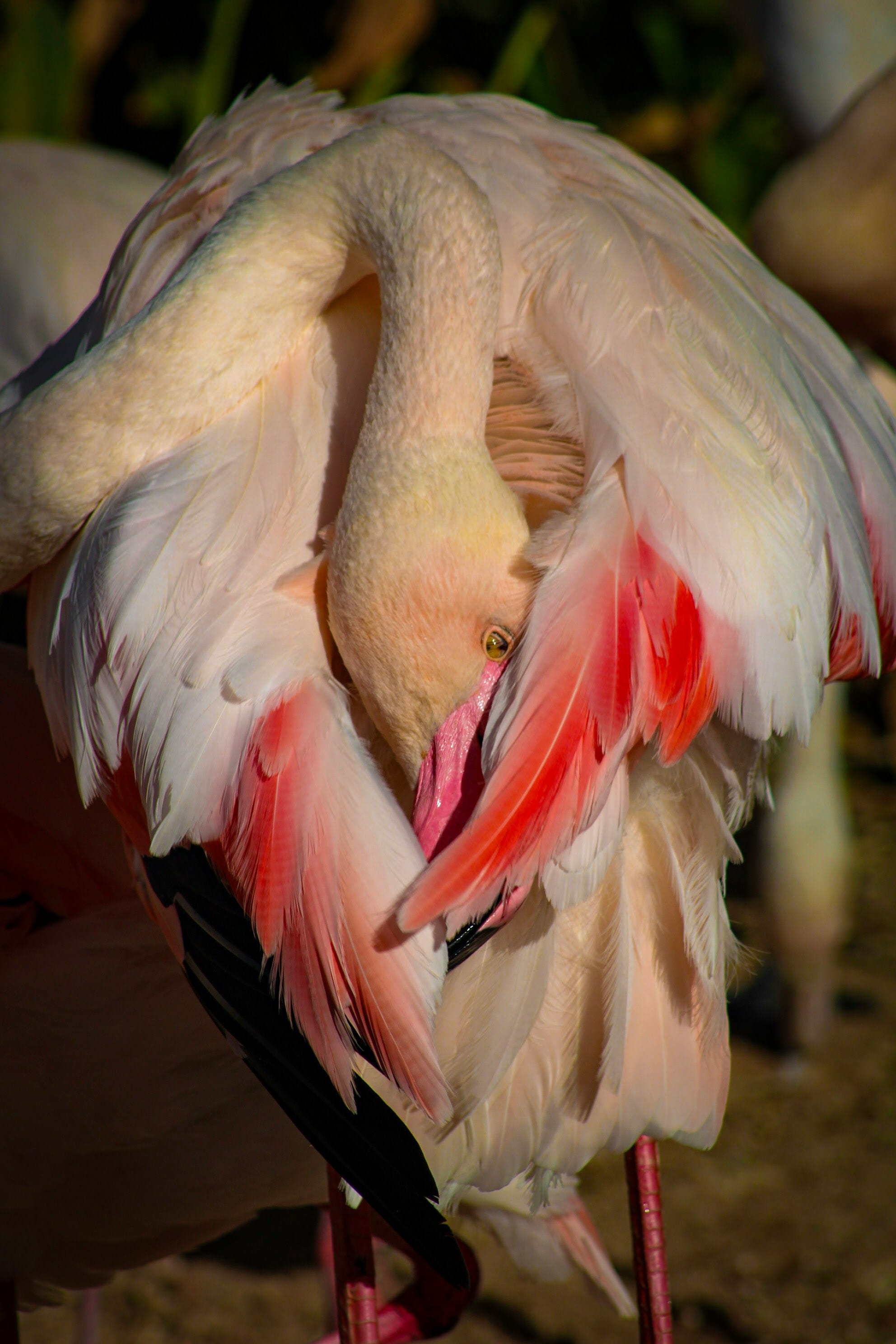
It’s Spring, but here, there’s still snow everywhere. The sun is too slowly returning and just whispers the teasing promise of a coming summer. The world feels inhospitable. I need inspiration. I need colour, I need heat.
So I pull out my beach blanket with matching towel and lunch cooler, all emblazoned with patterns of a creature of colour and heat, who inspired ancient myth-makers, 19th century authors, and cult film directors alike - the pink flamingo. But beyond its appearances in our human stories throughout time and place, more inspirational than the mythology is the complex and persistent life of the flamingo bird itself.
In her poem “How the Mountains drip with Sunset” Emily Dickinson asked:
Have I the lip of the Flamingo
That I dare to tell?
So let’s gather here in this flamingo flock today, and I’ll use my flamingo lips, and dare to tell you that we are kin. Let’s conquer a cruel landscape together, by bringing colour, heat, dance and joy to inhospitable places.
Because Flamingos exist and thrive in some of the harshest environments that our Earth has to offer. And if they can do it, so can we.
Fossils suggest that our flamingos’ earliest known ancestors lived around 50 million years ago - one of the earlier avian orders. Primordial birds with primordial magic.
Like Witches, flamingos are everywhere - global nomads. They can be found on every continent in the world except Antarctica and Oceania. Australia had flamingos in the past, but they’re extinct in the wild there now.
“Evidence suggests that Flamingos [as we know them] evolved some 30 million years ago. Its earliest ancestors were the palaelodus, who stood 5 feet tall. [...]The best-preserved signs of Flamingos [fossilized flamingo footprints] come from the Andes Mountains some seven million years ago. This ancient bird was alive at the same time as a moose-like Giraffe in Africa and the Gorillas, who were branching off of Great Apes. The world was transforming, and Flamingo bore witness to it all.”
The world is transforming, dear Witches, and the Flamingo still bears witness to it all.
Let’s fast forward through millions of years of Earth and flamingo history to arrive in 1957, in Leominster, Massachusetts, then the self-described Plastics Capital of the World where sculptor Don Featherstone was hired by the plastics company Union Products to design and sculpt lawn ornaments, starting with a pink flamingo.
They started as a way to bring naive whimsy to a front yard, and set a house apart from rest in cookie-cutter subdivisions. But soon they’d be snatched by irony, a sneering, unfunny, “upper-class inside joke”. These ornamental suburban lawn dwellers became what John Waters once described as: “loaded objects,” classist tools of the well-to-do mocking the taste of the less fortunate. The real plastic flamingo is in a sense extinct, John Waters said: “You can’t have anything that innocent anymore.”
John Waters was forever tied to these loaded objects when, in 1972, he released his film, Pink Flamingos, an exercise in and celebration of bad taste. And in it we Witches find some pink kin - outsiders, determined to live the way they want to live, be tacky, transgressive, praise and proclaim their weirdness. “It’s a minor cult right now” exclaims Divine as Babs Johnson, “but one that is growing and growing - growing faster than you can imagine. I will be queen one day, and my coronation will be celebrated all over the world. Do not forget: I AM DIVINE!”
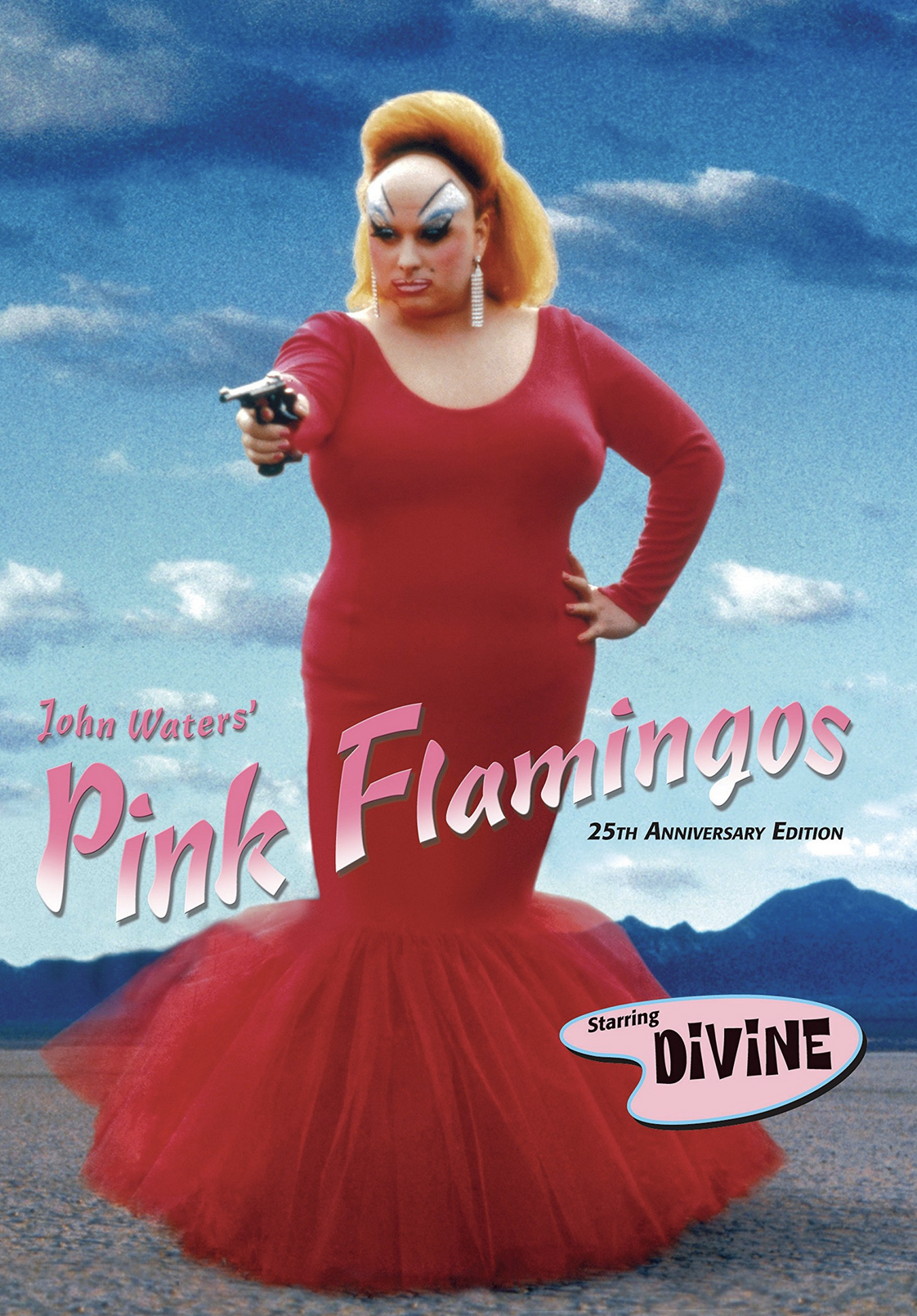
We’ll return to Don Featherstone and John Waters, but for now, there’s something I want to remind you about flamingos (the real alive ones, not the molded plastics) again and again.
Reminder: Flamingos evolved to live and thrive in some of the harshest environments that our Earth has to offer. So if you, like many of us, are feeling attacked by your surroundings, the vicious workings of late-stage capitalism and bro-ligarchy, classist tools of mockery, remember: We are Flamingo kin, and perhaps we are in the right place at the right time.
We are Witches, taking up this space that other beings find uninhabitable. We are strong, resilient, and just maybe, we were made for this: to reclaim harsh environments and fill them with bright pink feathers.
Flamingos epitomize adaptability, making their homes in some of the saltiest places on Earth. And right now the world feels salty in the modern sense too - bitter, angry, jealous, annoyed and mean, but we can survive, we can make it. And we can make it beautiful.
Because flamingos are soooooo beautiful… but they are also alchemists of survival. Turning skin to armour. They are sculpted by heat and hunger, wading through caustic waters that would sear the skin of the unprepared or the uninitiated. They thrive in toxic lagoons, in landscapes where the earth cracks open like an old wound, where salt and sulfur fill the air like incense. A flamingo’s long skinny legs like wands stir a protection spell into a cauldron of sunburnt, alkaline lakes.
And, like we Witches, their secret is adaptation, working with what we’ve got, and an ancient spell of evolution whispered through millions of years of DNA. Their legs, spindly as they may appear, have thick, tough skin that protects against the burn of acid. Their beaks are whale kin sieves shaped like crescent moons that strain sustenance from water thick with brine and mud - ‘filter-feeding’, keeping what nourishes them and releasing that which does not serve, and transforming poison into beauty, and healing, and a future.
And I’m sorry to say, Witches, but sometimes overcoming harsh conditions comes down to having thicker skin.
Flamingo colouration comes from their diet, brine shrimp turning their fledgling feathers from grey at birth to pink, red and orange - living reminders that what we consume affects who we are, affects the story we tell ourselves and the story our existence tells. What we let in, be it insults or brine shrimp or tiktok trends, what we take in can change us.
But we Witches must combine that thick skin with pink plumage. You know what I mean?
“Pink also means power among the flock, with the birds with the most vivid colouring having the highest status in the colony, showing that they are a strong individual and are good at finding food resources.”
This is authentic power. Pink feathers and thick skin.
Flamingos stand in the heat, with unbothered endurance, sometimes balancing on one limb in yogic tree pose - stillness in salty chaos.
They are pretty, but not fragile. Flamingos are fucking forged in fire - and bear that colour of flame and dawn, carrying the memory of first fires, and keeping the story of primordial sunset on their wings. Their existence is a testimony. The sun will rise again. The world is transforming, and flamingo bears witness to it all.
I want you to know that our flamingo kin inspired the mythology of the phoenix, that fire bird that rises from the ashes of its former self to fly again. That fire bird we call in when we need reborn, it’s a flamingo. We are phoenix kin. We are flamingo kin. We evolve. We rise.
Ancient humans marveled at this pink-plumed being and, inspired, created the story of an eternal bird of flame and rebirth.
In Egypt, when the sun god Ra reigned, flamingos somehow thrived in the burning heat, their bodies pre-painted in the colours of a rising and setting sun. It was said that the Phoenix, radiant, unyielding, built its nest of cinnamon and myrrh, ignited it with divine fire, and was consumed, only to rise again from the ashes.
The Greeks, too, saw flamingos and spoke of a bird on fire, an immortal being that thrived where others perished. Enduring, transforming, moving in flamboyant flocks like echos of the sun itself.
And we… we are Phoenix rising, flamingo kin - embers glowing in divine fire, volcanic lakes and brackish waters. Pink. Balanced, unbothered, and reborn.
We are flamingo kin and flamingos are nature’s witches, making do with where and when the fates have placed us, conjuring survival from desolation, proving that even in the harshest of locations, breathtaking beauty insists on taking its place.
It’s not just the alchemical workings of evolution that allow our flamingo kin to survive and thrive - flamingos need each other desperately. They rely on the flock for everything from location-scouting to childcare. Their communities are crucial to their survival.
And while flamingos are monogamous, same sex partnerships are not all that uncommon - Arthur and Curtis, two male flamingos at the Paignton Zoo in southwest England successfully hatched an adopted egg together!
“The zoo has had several all-male pairings during past breeding seasons, so the same-sex couple is not an unexpected turn of events, said Pete Smallbones, the zoo’s curator of birds. But the zoo is not sure exactly how the couple acquired the egg.
“It’s likely that this egg became available — unprotected, kind of just left (in a nest) — and then they’ve taken the opportunity,” said Pete [...]. “As a bird department, we’re more than aware of how it’s a known thing for flamingos, penguins and other species to have same sex pairings.”
I’m just saying, with or without John Waters, flamingos are queer-coded.
Lauren from the Chester Zoo in the UK underscores the flamingos’ reliance on community, saying that on their own, “their shadow will scare them, wind will scare them, but it’s something else to see them as a flock. How they interact together, they’re just so in tune with each other. But then separate one by itself and it’s like, how are you alive?!”
In a world of harsh sun, caustic waters, and relentless predators, relationships, togetherness in all its forms is the flamingos’ shield, their Coven, their ritual of resilience. In the great gatherings of thousands, flamingos find protection. A lone flamingo is vulnerable, but in the swirling, synchronized mass, they become an illusion - too many to track, too united to break. Predators hesitate, confused by the shifting mirage of pink.
When flamingos move, they move as one - a murmuration on water and sky, a collective consciousness flowing through them. And the bond is strong, safety woven in their numbers.
As John Waters said of an ill-fated photo shoot: “You can’t just mosey into a pit of pink flamingos. I have tried.”
Their nests are protected by circles of salt like spells and altars. Their chicks are raised in communal embrace, watched over by many.
But here’s an important note, and something for you to remember: the poetic collectivism of flamingos still leaves room for individuality! Gianna Catazaro, flamingo caretaker at the Denver Zoo says, “Even though I take care of seventy-four [flamingos] I can actually tell them apart based on personality.” Delightfully, the Denver Zoo names all of their flamingos after famous musicians and has dubbed their tribe The Flock Stars. The zoo holds yearly fundraisers called Flock Parties that raise funds for the zoo and global flamingo habitats.
Take it from Gianna, being part of a community does not mean being the same as everyone else. More than defense, more than logistics, a flock is a magic, a testament to the power of the many, the beauty of belonging despite differences.
Survival is a dance.
And indeed, a group of flamingos is called a ‘flamboyance’ but ONLY when they are dancing together. They call us to our own dance, to our own flamboyance that we choreograph with unique personality, in queerness and in covens.
Flamingo dances are courtship rituals at heart, but the dance is more than mating magic. It’s connection. It’s cohesion. They revel in rhythm, in motion, in the deep ancestral knowledge that survival is not just about endurance, it’s about joy.
Flamingos dance because life demands celebration, to remind us humans that, even in the harshest of places, there is room for beauty, for ritual, for all kinds of love. And if we can’t find all that, we have to make it ourselves.
So, throughout time, because of all this, flamingos have become deeply symbolic, not just of tacky bad taste, but of lessons we can take for our own lives.
“Flamingos offer valuable lessons to those who connect with its energy. These lessons include:
- Striving for balance and harmony in all aspects of life, ensuring that we maintain stability and well-being.
- Prioritizing love, commitment, and devotion in our relationships, cherishing the bonds we share with others.
- Embracing self-expression and individuality, confidently showcasing our unique qualities and standing out in our own way.
- Demonstrating resilience and adaptability, as the flamingo thrives in challenging environments and teaches us to persevere in the face of adversity.
[...] Dreaming of a flamingo in flight may indicate a desire for freedom, self-expression, and the courage to embrace your uniqueness. The bird's ability to soar through the sky can symbolize the need to break free from constraints, both internal and external, and confidently express your true self.”
The Witch, the phoenix, the flamingo, we are kin, and we rise, listening to Duke Ellignton.
“Flamingo, like a flame in the sky”
Like a flame in the sky we fly and swim and run across the waters and arrive in 1865 with the publication of Lewis Caroll’s Alice’s Adventures in Wonderland, to find one of literature’s most witchy flamingos.
The Queen of Hearts, a dastardly icon of crazed and unchecked power, has challenged Alice to a game of croquet, a game that the Queen has rigged to ensure an unearned victory.
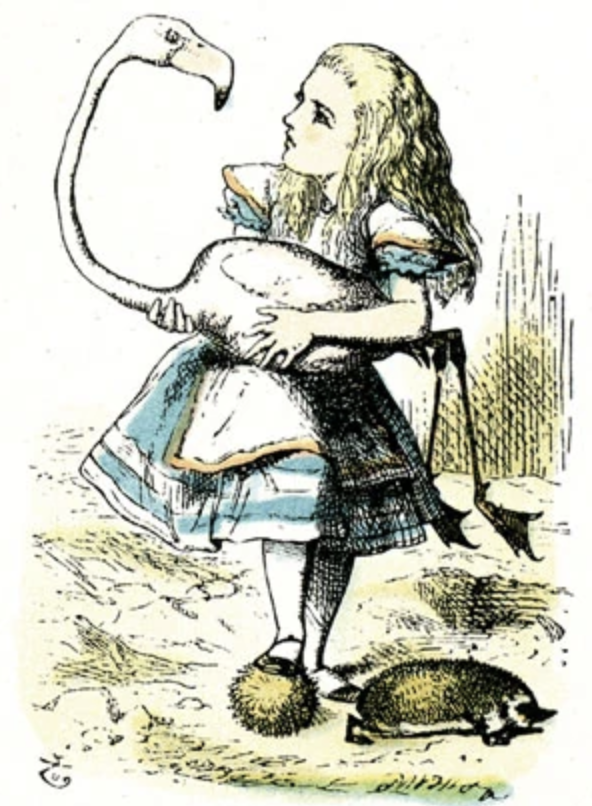
"Alice thought she had never seen such a curious croquet-ground in her life; it was all ridges and furrows; the balls were live hedgehogs, the mallets live flamingoes, and the soldiers had to double themselves up and stand on their hands and feet, to make the arches.
The chief difficulty Alice found at first was in managing her flamingo: she succeeded in getting its body tucked away, comfortably enough, under her arm, with its legs hanging down, but generally, just as she had got its neck nicely straightened out, and was going to give the hedgehog a blow with its head, it would twist itself round and look up in her face with such a puzzled expression that she could not help bursting out laughing: and when she had got its head down, and was going to begin again, it was very provoking to find that the hedgehog had unrolled itself, and was in the act of crawling away."
The flamingo refuses to be used as a mallet, refuses to take part, silently resists its assigned role in the Queen of Hearts’s authoritarian croquet game. And while it could be argued that the flamingo’s limp, confused collapse in Alice’s arms could be interpreted as the flamingo’s compliance to the Queen, sabotaging Alice’s chances of winning, we can also see it as an act of defiance against authority in general, and in this reading, our flamingo becomes a conscientious objector.
Rather than actively rebelling, our flamingo engages in passive noncompliance, refusing to function as a proper mallet, and this unwillingness to conform reflects the principles of conscientious objection - a moral or ethical refusal to participate in an unjust system.
So when we look at Wonderland’s flamingos as enacting an absurdist anti-authoritarianism, it becomes easy to draw that line back through a sunny sky and land squarely at the feet of John Waters. Pink Flamingos IS cinematic absurdist anti-authoritarianism. Not just pushing the boundaries of bad taste, but in its deeper, truer meaning. The antagonists of Pink Flamingos, Connie and Raymond Marble, aren’t the villains because they are trying to usurp Divine’s title of ‘Filthiest Person Alive”. No, they’re the bad guys because they are hypocrites, who claim to be anti-authoritarian, but call the cops any time something doesn’t go their way. As Matt Baume says, “Murder and mayhem are all in good fun, but the moment a character is dishonest, the moment they express public disapproval of something they themselves do in private, that’s when you know they’re the real villain. [...Upon capture] Connie and Raymond cross one more line: The Marbles pretend to be someone else, denying who they truly are. This is what sets them apart from Divine’s family - the moment it’s convenient, the Marbles pretend to be someone they're not, but Divine is always true to herself.”
The poet Rilke concludes his poem The Flamingos with:
they have stretched themselves
and stride off one by one into the imaginary.
And that’s what I want for all of us Witches, to stretch our necks toward the future and stride off into the imaginary. What world can we build with imagination, flamboyance and the protection of a community?
In his Letters To A Young Poet, Rilke wrote:
“If your daily life seems poor, do not blame it; blame yourself, tell yourself that you are not poet enough to call forth its riches; for to the creator there is no poverty and no poor indifferent place.”
And this could just as easily have been a verse for a flamingo poem too. Because our flamingo kin does not blame the harsh world for surrender, but rather, filter feeds from mud and saltwater to find the nourishment that makes them glow pink. They develop thick skin and never pretend to be something they’re not. Flamingos are always true to themselves. We can be flamingo poets too and call forth the riches of any place, and any time, build altars out of salted soil, rejecting the pull of indifference with absurdity, community and flamboyance.
In 1996, Don Featherstone won the Ig Nobel Prize for Art, a parody of the Nobel Prize that celebrates quirky yet valuable contributions to society. In 1973, famed movie critic Roger Ebert wrote of John Waters' film, “‘Pink Flamingos’ is one of the most vile, stupid, and repulsive films ever made—but it achieves that goal so completely that it rises above bad taste into a kind of glory.”
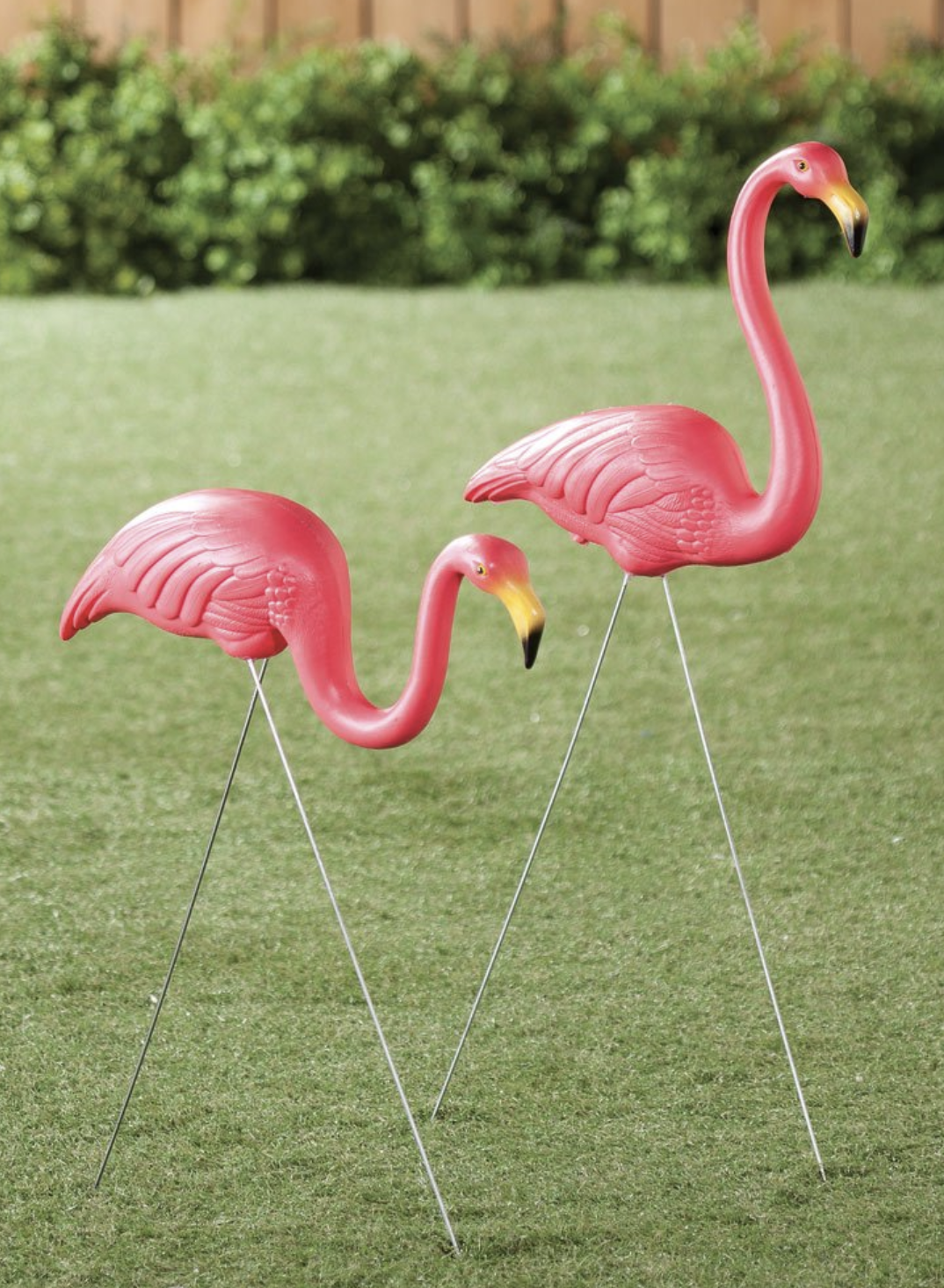
What will be our ignoble contribution to our world, flamingo kin? What imaginary tacky kitsch will we embrace and reclaim? The 2019 Met Gala theme drew inspiration from Susan Sontag's essay "Notes on Camp." The event featured a pink flamingo motif. What flamingo poems will we write about that? What will we rise out of, into glory?
Our flamingo kin have gone from inspiring myths of renewal, to inspiring laughter, vanilla taste, and transgressive taste, to become a symbol of everything from paradise to disdain. Witches have travelled through these cycles too. Revered, demeaned, made plastic. But we are fire-birds, reborn again and again to suit our place and time. We rise above bad taste into a kind of glory where pink means power.
Have you the lip of the flamingo? Do you dare to tell?
Flamingos endure the harshest environments, the most inhospitable conditions because they are built for it - specially made to withstand, and they survive because they stick together. So if you feel like the only way you’re going to get through this place, this time is with stubborn adaptation and the help of your community, then perhaps you are flamingo kin.
And perhaps we can protect each other, move together in murmuration. Dance together in flamboyance.
We Witches are all flamingo kin.
We are not the plastic versions of ourselves, bought and sold on the marketplace, frozen in place, subject to taste, bound to irony, mockery, our attempts to bring joy to our low-income lives sneeringly described as trailer park trash.
No, we are those real living breathing flamingos, real flamingo kin, alive, dancing, strange, and fucking tougher than we look. Pink feathers and thick skin. Building our nests out of mud, cinnamon and myrrh. Pink feathers and thick skin.
Behold our kin, exploding in colour, whimsy and joy. Withstanding those harshest environments, without ever losing the ability to fly!
We are not fragile, we are forged in fire.
We call in Colour. We call in Heat.
We call in the flamingo.
The world is transforming, and we will bear witness to it all.
Rise above the bad tastes of our times into a kind of glory.
We can make it. And we can make it beautiful.
You.
You are divine, pink, flamingo kin.
We are kin, and we rise.

